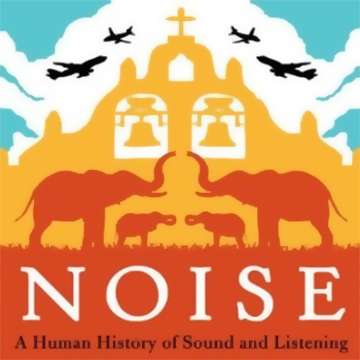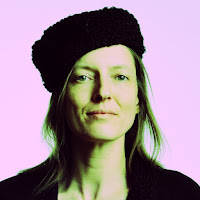Noisier - Airs Jan 7th
Music While You Shop, Music While You Work from Noise: A Human History of Sound and Listening
What if history had a sound track? What would it tell us about ourselves? Professor David Hendy of the University of Sussex demonstrates how it has been used to soothe us, to cheer us, and even make us productive over the past hundred years. We'll also hear extremely rare recordings from wartime episodes of the much-loved BBC series, 'Music While You Work.'
An Ever Noisier World from Noise: A Human History of Sound and Listening
The twentieth century brought attempts to distinguish between 'necessary' and 'unnecessary’ noise.' In New York, the authorities tried to clean up Coney Island fairground, banning barkers from using megaphones and targeting street sellers, newspaper boys, and buskers. But the volume of modern life has risen inexorably. We will travel to Ghana’s capital, Accra, a city so loud that visitors describe its streets as a visceral shock, and introduces an elegiac recording of the wild soundscape we’ve lost, captured by the celebrated naturalist, Bernie Krause.
What if history had a sound track? What would it tell us about ourselves? Professor David Hendy of the University of Sussex demonstrates how it has been used to soothe us, to cheer us, and even make us productive over the past hundred years. We'll also hear extremely rare recordings from wartime episodes of the much-loved BBC series, 'Music While You Work.'
An Ever Noisier World from Noise: A Human History of Sound and Listening
The twentieth century brought attempts to distinguish between 'necessary' and 'unnecessary’ noise.' In New York, the authorities tried to clean up Coney Island fairground, banning barkers from using megaphones and targeting street sellers, newspaper boys, and buskers. But the volume of modern life has risen inexorably. We will travel to Ghana’s capital, Accra, a city so loud that visitors describe its streets as a visceral shock, and introduces an elegiac recording of the wild soundscape we’ve lost, captured by the celebrated naturalist, Bernie Krause.




Comments